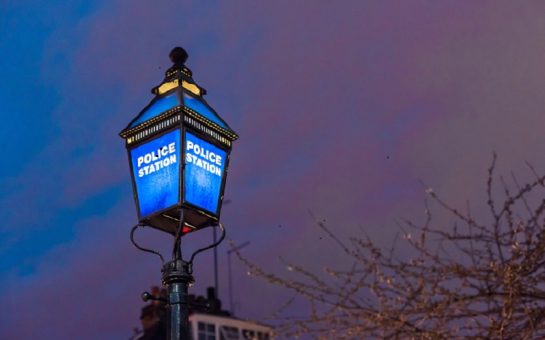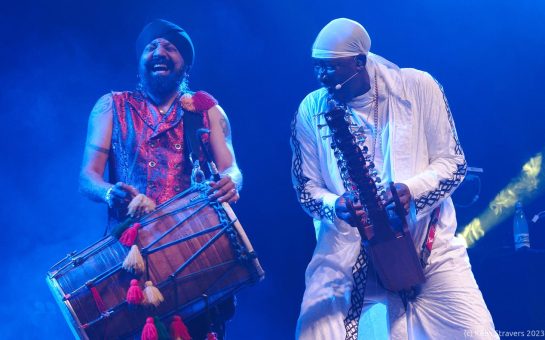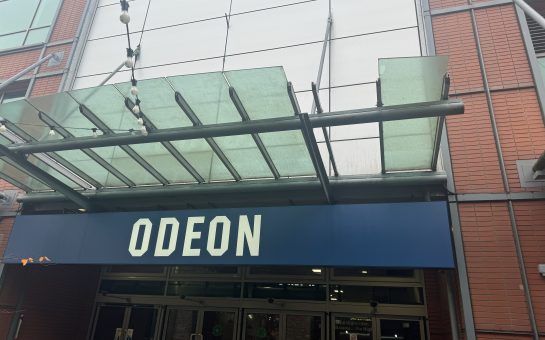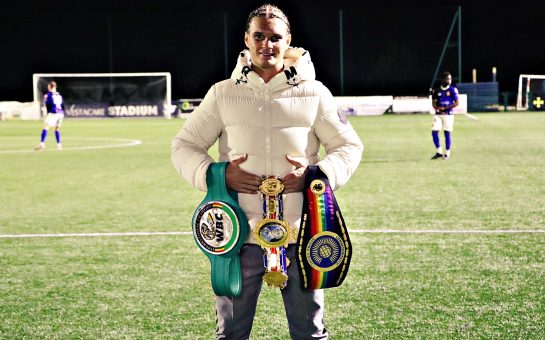A Manchester child protection charity, Africans Unite Against Child Abuse (AFRUCA), is calling for ‘widespread community’ action to fill the ‘gaping hole’ in the provision of support for FGM victims.
Exploring female genital mutilation in 12 practising African communities across Greater Manchester, new report: Voices of the Community, revealed a huge disparity between the government’s stance against the practice and individual perception.
Though FGM has been illegal in the UK since 1985, the qualitative study concluded that many participants didn’t agree that part of their culture should be criminalised and were unaware of the risk of prosecution, or that it was considered child abuse.
Reflecting on the implications of this, AFRUCA’s FGM Project Coordinator Rose Ssali told MM: “It’s very difficult – some communities see FGM as a cleansing process.
“But at the end of the day we told communities how it was – we can only plant the seed and hope they will change their outlook.
“Our core ethos is child protection so we had to make them aware that it’s against the law and also child abuse.”
FGM is a cultural – not religious – practice that varies from the removal of the clitoris to the complete stitching up of the vagina usually inflicted upon prepubescent girls from regions across Africa and the Middle East.
Under the Female Genital Mutilation Act 2003, it’s illegal to either perform FGM or assist a girl to carry it out on herself.
To counteract young girls being flown out of the country during the school summer holidays to be cut, this and all other FGM offences now have an increased maximum sentence from between five to 14 years imprisonment.
In a landmark ruling, Nigeria last month passed a nationwide ban against FGM, as part of The Violence Against Persons (Prohibition) Act 2015 which carries a maximum penalty of four years, and a £650 fine.
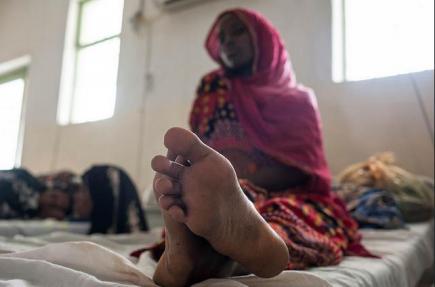
RITUAL: Mariame Habib, 17, was subjected to female genital mutilation when she was a child (© Unicef, with thanks)
An important ritual in many practising African countries, FGM is widely considered female ‘circumcision’ and ‘cleansing’ – arguably comparable to male circumcision which is legal throughout the world.
AFRUCA’s research showed that some women felt their culture was being targeted, suggesting that maybe the term ‘mutilation’ – introduced to encompass all forms of FGM – has created mass stigma.
Ms Ssali added: “Like other things it will sink in slowly, but there is a lot of work to be done as practising communities feel it is part of them.
“At our launch event, some of the participants told police officers and professionals that they need to handle the practice sensitively because in some communities all of the women are cut and will take a lot of input to change their mindset.
“In other communities they don’t consider what they do as FGM, especially those communities which carry out Type four that includes, labia elongation, and other countries that aren’t even listed on the World Health Organisation’s radar map.”
According to the World Health Organisation, FGM comprises ‘all procedures that involve the partial or total removal of the external female genitalia, or other injury to the female genital organs for non-medical reasons’.
It is categorised from Type 1-4, the latter being a rarer, less discussed form of FGM that can include, stretching and piercing the genitalia.
AFRUCA strongly feels that all agencies and communities need greater awareness of it in order to protect at-risk children.
With no recorded health benefits, the age at which circumcision is carried out varies with local traditions and circumstances, ranging from shortly after birth up until adulthood.
In Greater Manchester all 28 practising African countries are represented – Manchester City has the highest population of FGM practicing communities, closely followed by Salford, Bolton and Rochdale, according to a study done by Bury Council in 2011.
Wigan and Bury have lower populations of practising communities while Oldham and Trafford have a growing population.
Holding focus groups with natives from Kenya, Uganda, Nigeria, Rwanda, Sudan, Sierra Leone, Guinea-Bissau, Burundi, Zimbabwe, Ethiopia, Eritrea and Somalia, the results show startling similarity in their reasons for being circumcised.
The most common being that it’s a ‘rite of passage’ which made them ‘belong to a community’, reduced a woman’s sexual promiscuity and enhanced sexual pleasure for men.
Observed as a celebration in some cultures, girls are thrown special parties in their honour and prepare for the ceremony much like a British girl would her birthday.
On the other hand, there are grave consequences for not being circumcised, with most women saying that they would be outcast from their communities, might not get married, or would be abused by their husband as a result.
Mothers are also morally conflicted and want to protect their child. As one participant said: “If your child is suffering because she was not circumcised, what will you do?”
Ms Ssali said: “There are those who live with the impact of FGM and those who live with the impact of not having it done so support is needed for all women.
“For example, a particular community in East Africa believe that if a midwife looks at an uncut woman she’ll go blind so she is then performing it to protect her eyesight, and repel bad luck – it’s not even about the woman, it’s about the midwife’s welfare.
“In life, everybody experiences ups and downs, for example, getting divorced. Everybody dies, becomes ill or poor, but all of those problems could be blamed on a woman because she didn’t have FGM.”
This is a long-standing issue that Ms Ssali believes, until recently, the Western world has been ‘slow’ to acknowledge as an important one.
And she explained that even within the communities that practise FGM, it is a very sensitive matter.
Though 2015 figures point to there being close to 45,300 Black African people in Greater Manchester, there’s a wave of silence among communities due to FGM being a ‘private practice’ with an unspoken obligation to be discreet.
Ms Ssali drew parallels between this inherent fear and shame to why there hasn’t been a single prosecution for FGM and the impact this may have on potential disclosures from children.
She said: “You’re not going to walk out at two or three-years-old – with some children it’s from four days old – and go into a police station to report your mother or father, remembering the hierarchy in the African community is the father first – there’s a barrier there.
“The way the African community works is that if it’s acceptable in the community, then it’s not a crime, and that’s what happens here in the UK but on a smaller scale.
“So if you report your father, where will you go? Where’s that girl’s protection and support?”
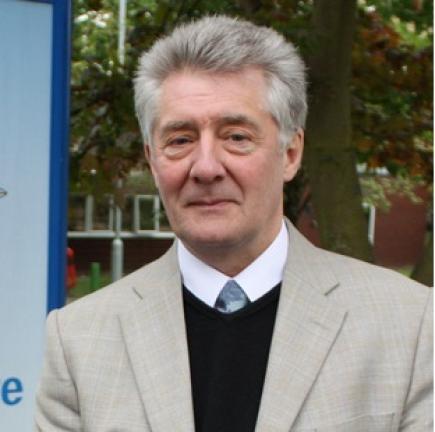
‘COMPLEX’: Police and Crime Commissioner Tony Lloyd (© York Labour, with thanks)
Greater Manchester’s Police and Crime Commissioner, Tony Lloyd, who was a keynote speaker at the launch of this report, helped shed some light on this process.
He indicated that the priority for agencies should first be resolving any ‘physical or psychological issues’.
He said: “If a young woman came forward and said that she wanted to be part of a process of getting her disclosure to the criminal justice system, you’d hope that any responsible adult within a school environment or elsewhere would help that young woman to report it to the police or other appropriate public agencies.
“What is certainly the case is that it would be taken seriously by the police – in this day and age there can’t be a situation where that wouldn’t be seen as high priority.”
Mr Lloyd also suggested that the answer to tackling the region’s FGM epidemic was complex and required less input from the police and more grassroots intervention.
He said: “It’s got to be a collaborative approach because the really big issue is changing people’s hearts and minds.
“It’s not sanctioned by religion and it isn’t accepted on either health or legal grounds, and getting people to address all of the problems together – particularly the voices that are trusted within the communities most affected because it is that level of trust.
“A group that represents people who come from those communities directly involved is particularly powerful because they’re not to be accused of misunderstanding the cultural backdrop to the issue and it makes it more powerful that they’re challenging the use of FGM in the modern world.
“It’s very difficult for a man from my culture and religious background to be the voice that persuades people within affected communities to change their attitudes which is why it’s important that we work with groups like AFRUCA and not just leave them to fight this as a lonely battle, but say this concerns us all.
“These are young, British resident women and we owe them a duty of care and protection.”
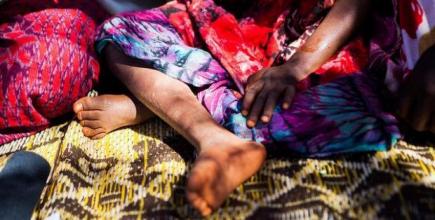
‘WE OWE THEM A DUTY OF CARE’: Tony Lloyd said it is our responsibility to be more pro-active (© Unicef, with thanks)
When asked if there was any clear way of measuring the success of intervention around FGM and whether the number of prosecutions would form part of this, the new interim Mayor simply answered, no.
He said: “I’m sure if you’d asked that question before 1985 they’d be astonished to hear that 30 years on you wouldn’t see any prosecutions in Britain.
“In central government and onwards we’ve got to raise, both the question, and put real effort into changing people’s minds.
“What is true is that if we see successful prosecutions, part of that in cutting young women, that would make a difference because it would send a shockwave to people who think it’s acceptable.
“But this isn’t like other areas of criminal law where there’s a well-defined victim who comes forward to ask for help which is the real problem.”
Founded by the charity’s Director, Debbie Ariyo, in 2001 to promote the rights and welfare of African children in the UK, AFRUCA work in partnership with other organisations in both Africa and Europe.
Granted just under £5,000 through ROSA, a UK fund which supports projects working with women and girls, AFRUCA’s rapport with families has enabled them to launch several initiatives.
Currently recruiting a group of volunteers aged 16- 20 for their Anti-FGM Youth Project called ‘Champions’, they are helping to create a dialogue between the different generations.
Adopting a wholesome approach, Ms Ssali explained that AFRUCA aims to work with individuals who have just come from their home countries to change their attitudes about children’s rights.
She said: “The majority of those countries have laws against FGM, but they’re not taken into account because people aren’t prosecuted.
“When you leave a country especially, bits of your culture become extremely more important to you because they’re your only link to home so it’s about changing the whole community.”
Eager to send the right message, AFRUCA are urging professionals working with victims of FGM, or those at risk of, to develop better cultural awareness of the range of FGM practising communities in Greater Manchester.
She said: “At the end of our report we have recommendations and community engagement is crucial. We have to ask: what is the support network that’s been created around this person?
“What would happen to them if you go knocking on their door and when you leave? Those things have to be thought out properly.
“If men are involved in this from the start – because women do this to please men – if they speak out against it, it will help the women to stop.”
Hoping for AFRUCA to secure more funding, Ms Ssali told MM their aim to build a support hub in the city, engage with more schools and get commissioned by other organisations.
“One primary school in particular we’re working with is almost 90% BME and such schools are more than willing to work with us so we’re trying to devise ways of delivering awareness and support without making FGM the main issue because we don’t want parents to withdraw and think they’re being targeted.
“Support services have to be increased and supported themselves, like for AFRUCA if we had more funding this report would have reached a wider audience.”
Ending on a positive, Ms Ssali said she is confident some communities are willing to collaborate with them and turn things around and that others who are ‘clinging’ to their familiarities just need more time.
For more information about Africans Unite Against Child Abuse click here.
